Huwag kailanman iwan ang gym nang hindi ginagawa ito muna, nagbabala ang CDC
Ang paglaktaw ng hakbang na ito ay maaaring mapanganib sa iyong kalusugan.
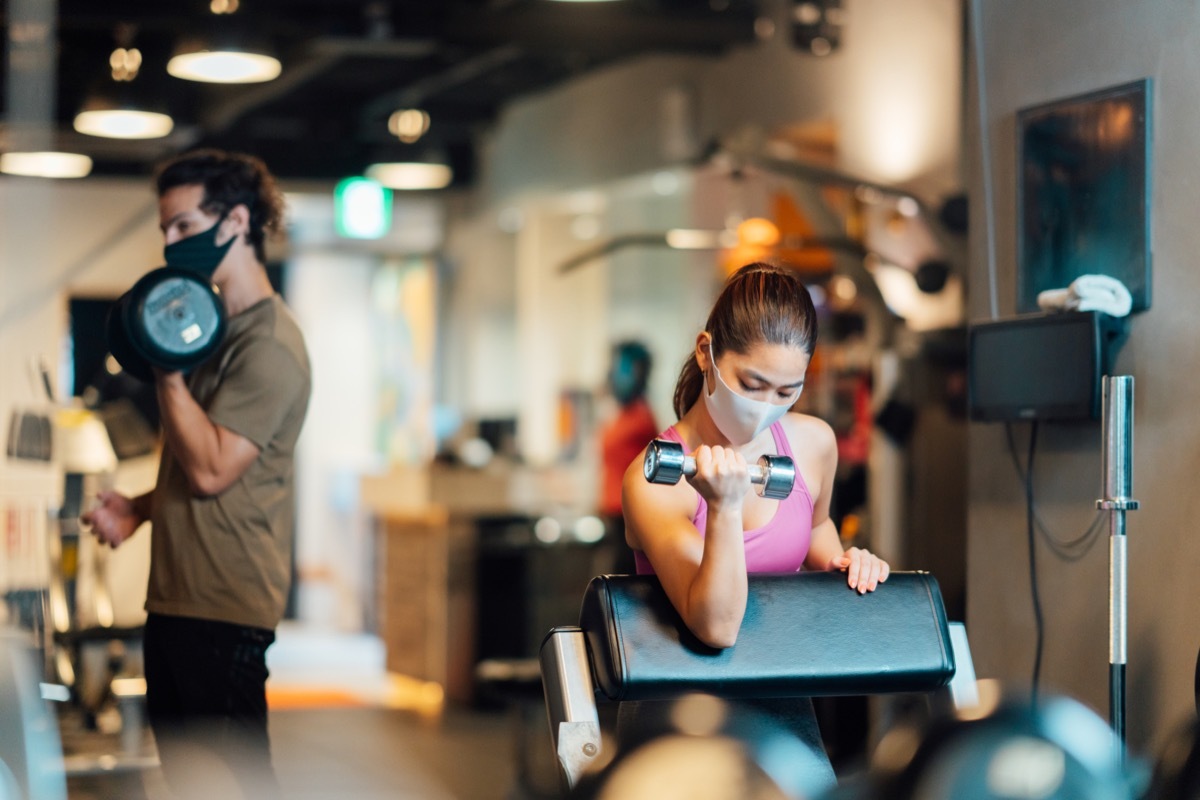
There are few things better for your health than hitting the gym, but experts say your workout could actually put you in danger. Gyms, it turns out, are hotbeds for bacteria—including one specific type that can cause lifelong, recurring infections. That's why top experts from the Centers for Disease Control and Prevention (CDC) are now warning that you should never leave the gym without doing one thing first. They say skipping this simple step even once could wreak havoc on your health—and even put your loved ones in danger after the fact. Read on to learn the best way to stay safe at the gym.
RELATED: The Worst Thing You're Touching at Walmart, Infectious Disease Doc Warns.
Dangerous MRSA bacteria spreads easily in gyms.
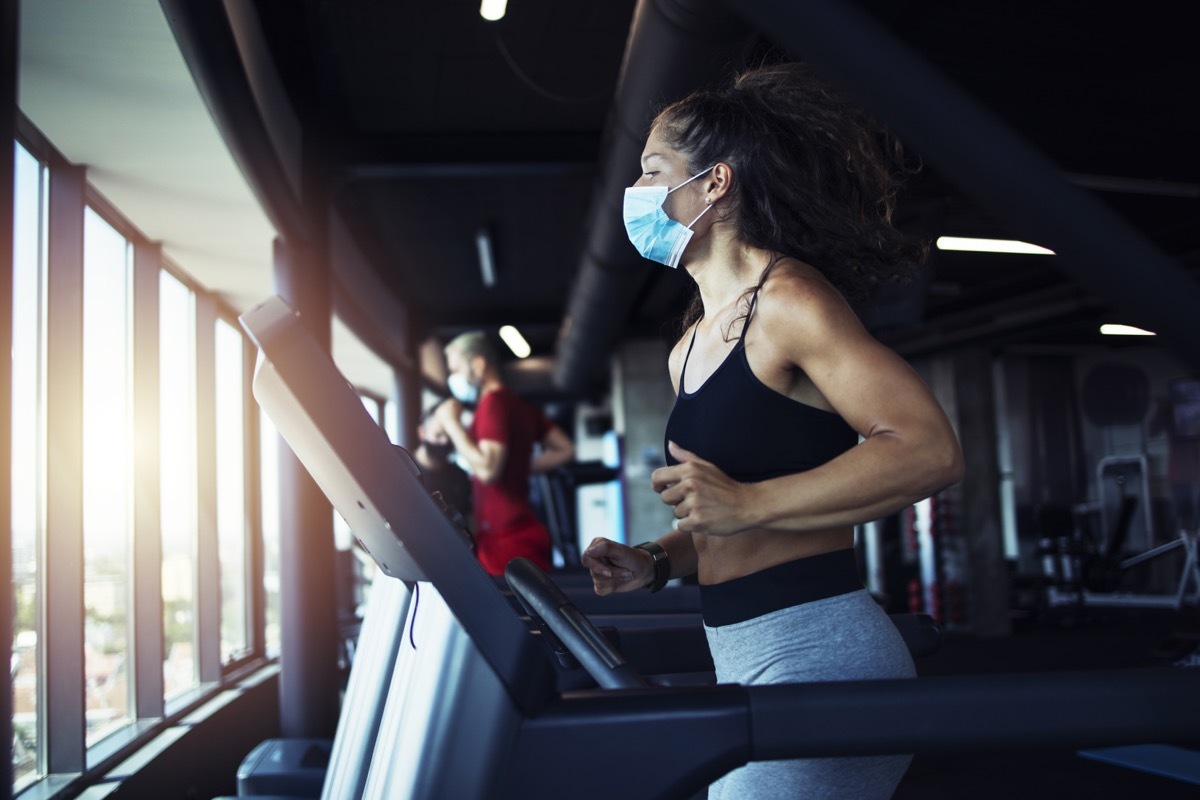
It's no secret that if a gym isn't regularly cleaned, the equipment can be contaminated with some very gross germs. Specifically, the CDC warns that gyms are often breeding grounds for Methicillin-resistant Staphylococcus aureus (MRSA), a dangerous type of bacteria that doesn't respond to antibiotics. "MRSA spreads easily in athletic facilities, locker rooms, gyms, and health clubs because of shared equipment and skin-to-skin contact," the CDC writes.
MRSA and other staph infections can cause sores, boils, lesions, or impetigo blisters, says the Department of Health and Human Services (DHHS). "Anyone can get MRSA. Infections range from mild to very serious, even life-threatening," DHHS literature explains. Though MRSA is most often spread through skin-to-skin contact, you can contract the illness by "using personal items of someone who has MRSA, such as towels, washcloths, clothes, or athletic equipment," they explain.
Besides MRSA, there are several other skin conditions which are commonly spread in athletic facilities. These may include plantar warts, ringworm, athlete's foot, and more.
RELATED: If You Notice This on Your Skin, Get a Blood Test, Experts Warn.
Never leave your gym without showering first, experts say.
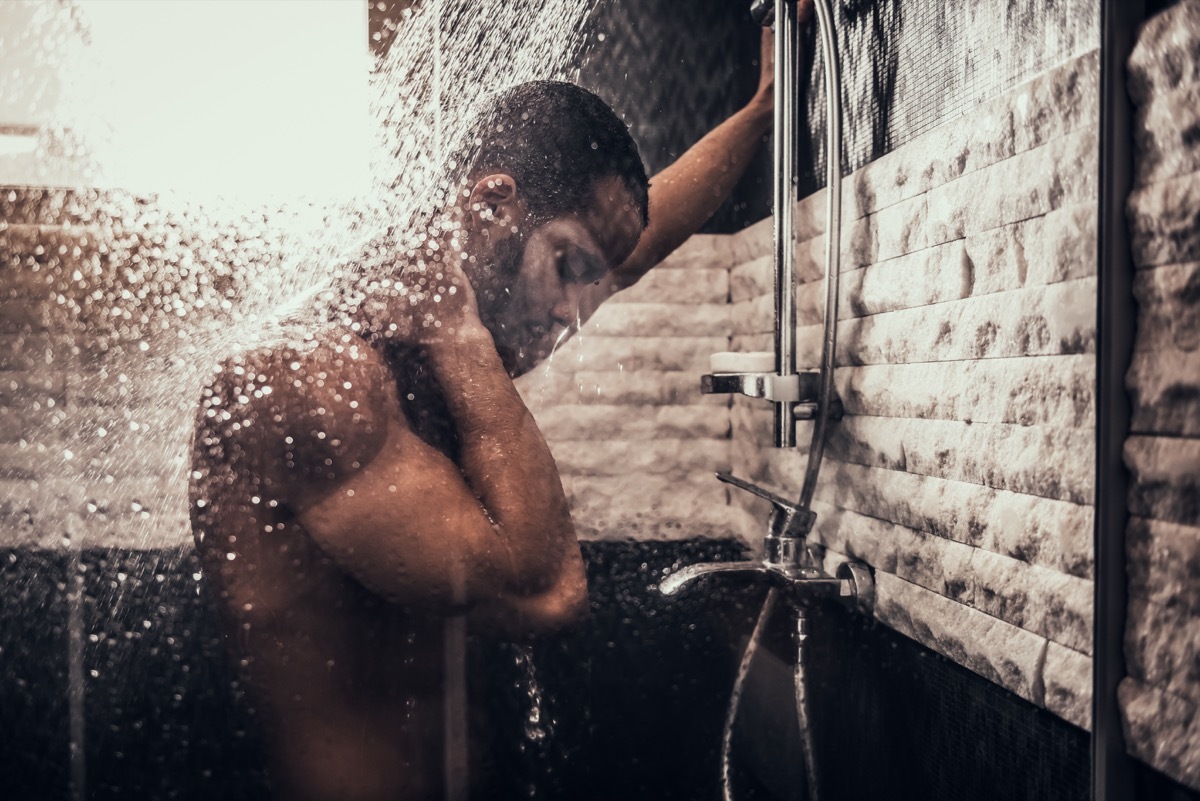
People with MRSA and other staph infections have MRSA bacteria living on their skin, as well as inside their noses. Showering immediately after working out can reduce the amount of bacteria on your skin, and help prevent it from entering your body and causing an active infection. It's especially important to shower before and after using your gym's public sauna, hot tub, or pool, immediately after playing sports or working out at the gym, and before any intimate skin-to-skin contact with another person, writes the DHHS. However, the CDC notes that showering in community settings can pose its own risks, and recommends against sharing bar soap or towels.
If for some reason you cannot shower before leaving the gym, wash your hands thoroughly with warm, soapy water. "At a minimum, hands should be cleaned before and after playing sports and doing activities such as using shared weight-training equipment," the health authority says.
Some athletes are at greater risk of MRSA.
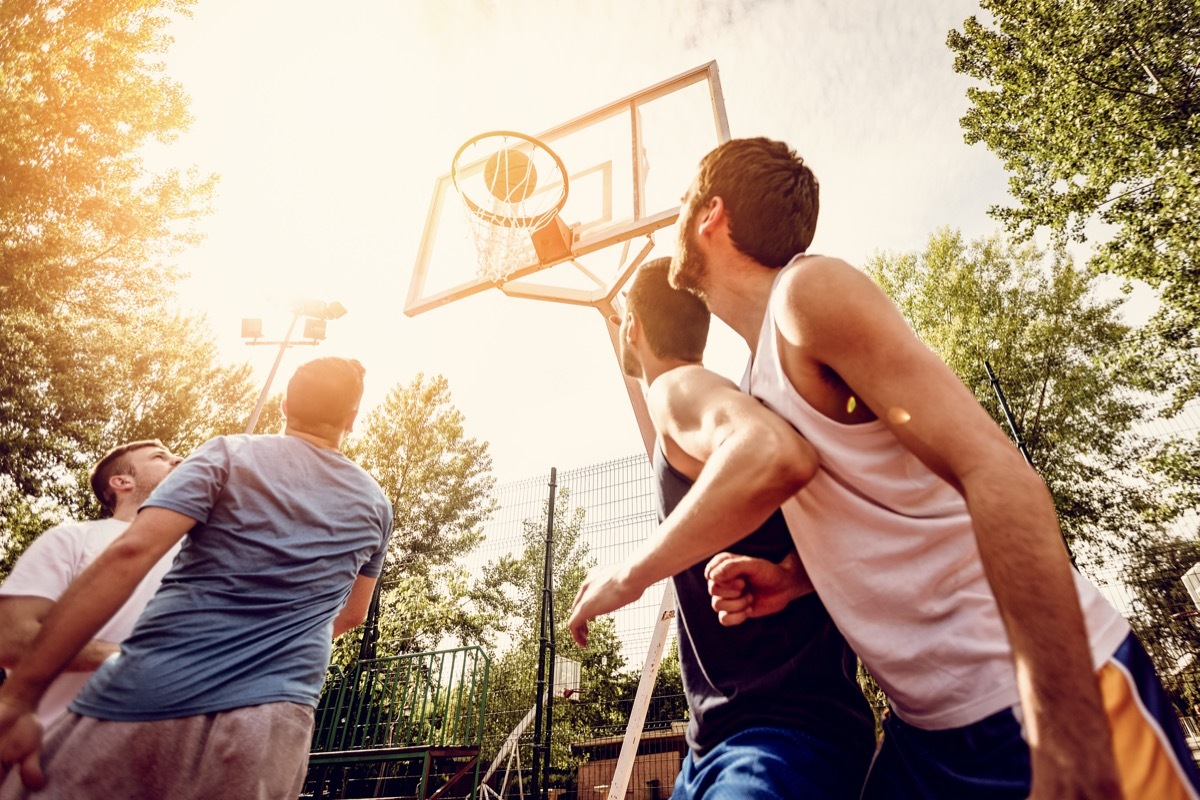
Because MRSA is most often spread via skin-to-skin contact, certain athletes are at heightened risk, warns the CDC. "Skin infections, including MRSA, are most commonly reported among athletes in sports with a lot of physical contact. This includes wrestling, football, and rugby," they write. "However, MRSA infections have been reported among athletes in other sports such as soccer, basketball, field hockey, volleyball, rowing, martial arts, fencing, and baseball."
It's worth noting that even outside of these high-contact sports, athletes may contract MRSA through shared items and environments. "Even though some sports involve only small amounts of physical contact, MRSA might spread before or after participation, such as in the locker room," the health authority says. "Anyone participating in organized or recreational sports should be aware of the signs of possible skin infections and follow prevention measures."
For more health news sent directly to your inbox, sign up for our daily newsletter.ae0fcc31ae342fd3a1346ebb1f342fcb
Be sure to take these protective measures for others.
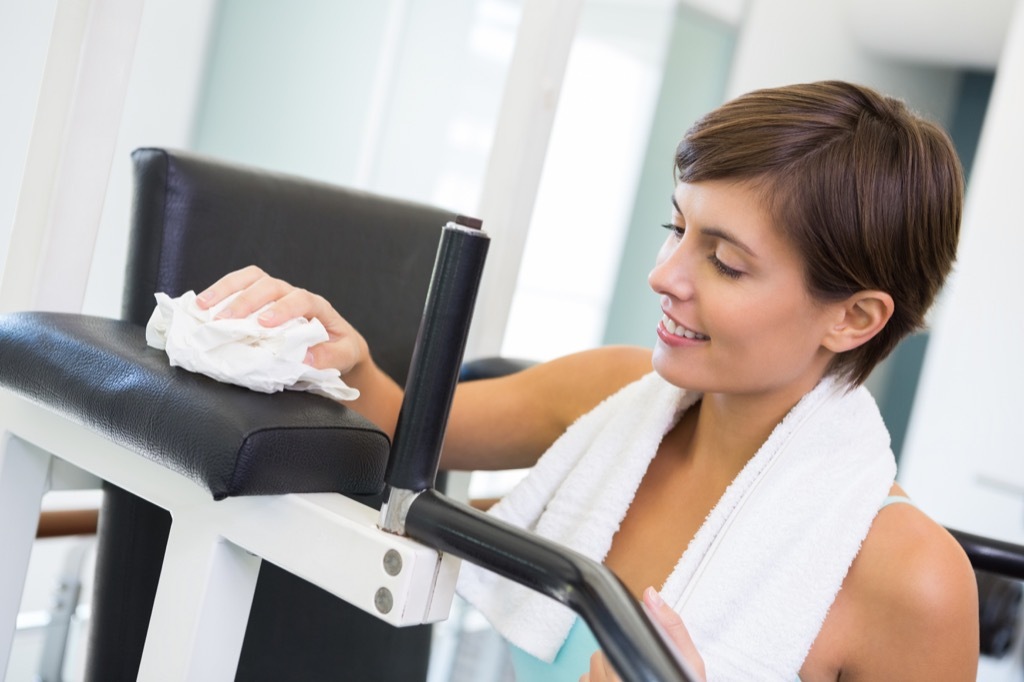
Not all MRSA cases are active or visible, but even people without symptoms can be carriers and are capable of spreading this harmful bacteria—including you. That's exactly why you should take precautions to keep yourself and others safe. In addition to showering, always wipe down exercise equipment with a sanitizing wipe before and after you've used it. And because bacterial infections are more likely to spread via an open wound, it's also important to cover any cuts or abrasions before you touch any type of gym equipment.
Makipag-usap sa iyong doktor kung pinaghihinalaan mo maaaring magkaroon ka ng anumang uri ng impeksiyon sa balat, kabilang ang MRSA. Samantala, patnubayan ang gym, kung saan maaari mong madaling kumalat ito sa iba.
Kaugnay: Ang isang bahagi ng katawan na hindi mo dapat hugasan sa shower, sinasabi ng mga doktor .
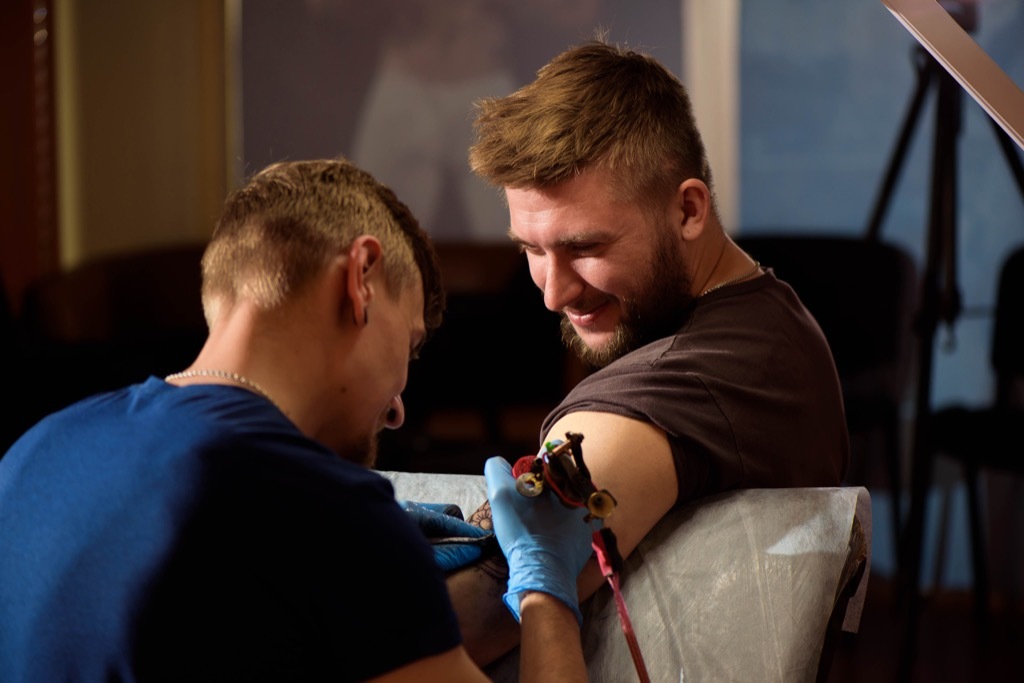
50 makabuluhang mga tattoo ng mag-asawa upang ipakita ang iyong walang hanggang pag-ibig

Tingnan ang anak ni Meg Ryan at Dennis Quaid na lumaki
